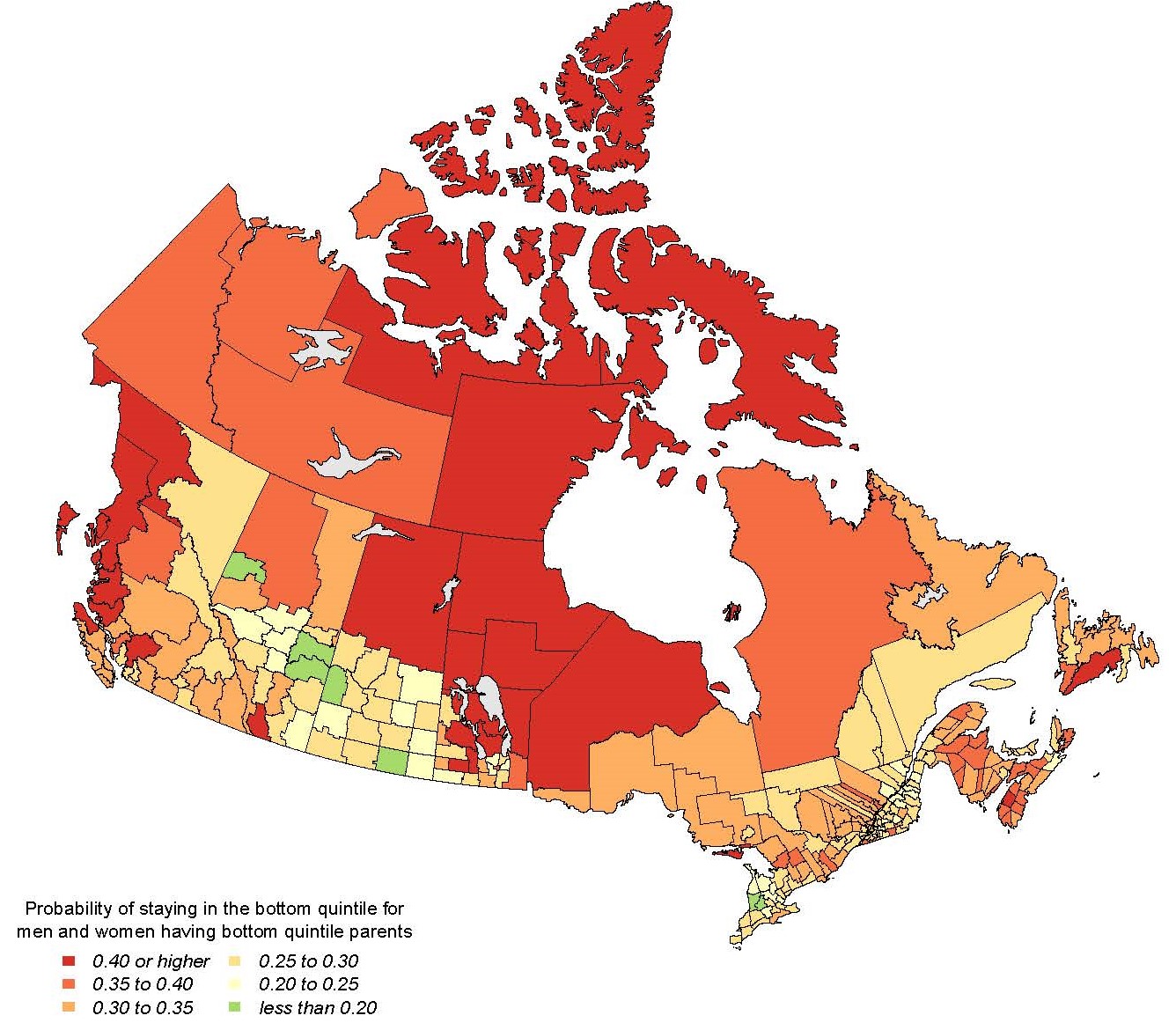Posted By Camilia Thieba
Intergenerational Economic Mobility
October 30, 2019 |
0
Comments

Intergenerational Economic Mobility
Intergenerational economic mobility is a term that refers to the ease with children’s income level to changes compared to their parents. For economists, it is a sign of equality of opportunity.
“The more unequal a society is, the more difficult it is to move up the social ladder, simply because children have a greater gap to make up.” OECD, 2008
In an ideal world, with complete intergenerational mobility, a person place of birth or family background will have no impact on their income level as adults meaning that a child born into poverty would have exactly the same likelihood of earning a high income in adulthood as a child born into a rich family.
Nation-wide information on intergenerational income mobility shows that Canada is doing much better than many of its peers. However, a study conducted by Miles Corak (2017), professor of public and international affairs at the University of Ottawa demonstrated that Canada is not a country of opportunity for all. Some areas are mobility traps, where moving up the income ladder is far more difficult.
As this report demonstrated:
- 1 in 5 children raised in low-income household will make it to the top income earners as an adult
- 1 in 3 children raised in a low-income household will remain in poverty as an adult
As Miles Corak noted three factors are likely to determine the ability of children to move into a higher economic class:
- Family background and resources
- Labour market inequalities
- Government policies
These statistics highlight the need to dig deeper to understand the factors that fuel inequalities.
“Without spending some time understanding the intricacies of the lives of the poor and why they make the choices they make … it is impossible to design the right approach,” Esther uflo, 2019 Nobel Prize in Economic Sciences
Want to learn more about this subject you can read A tale of two Canadas: Where you grew up affects your income in adulthood
Like this:
Like Loading...